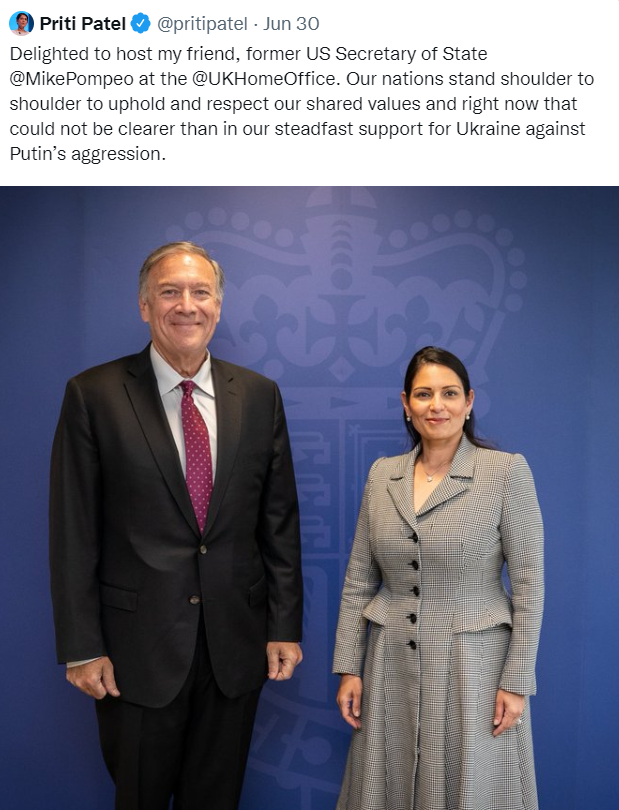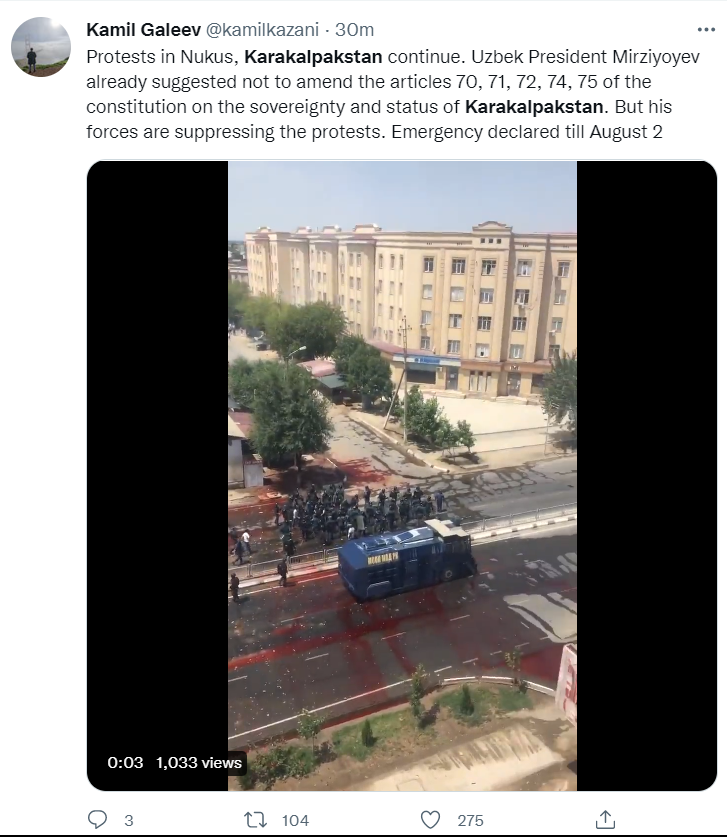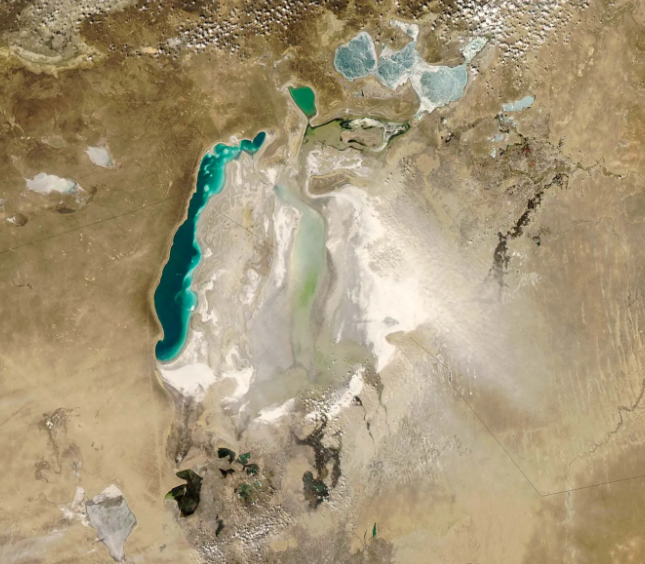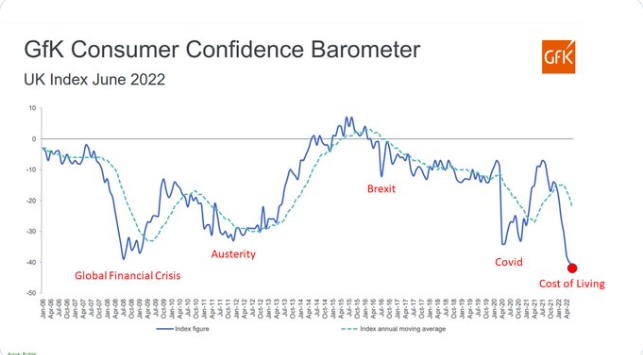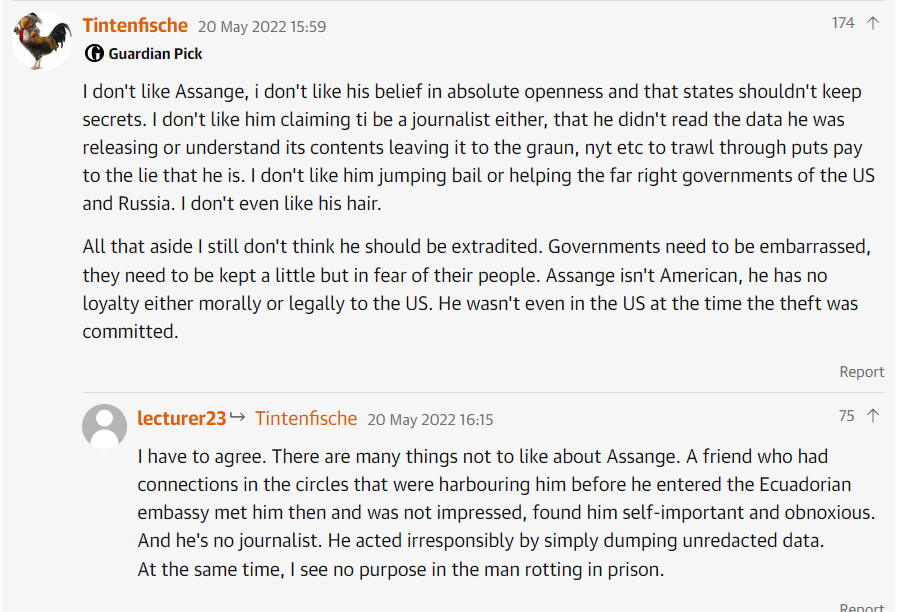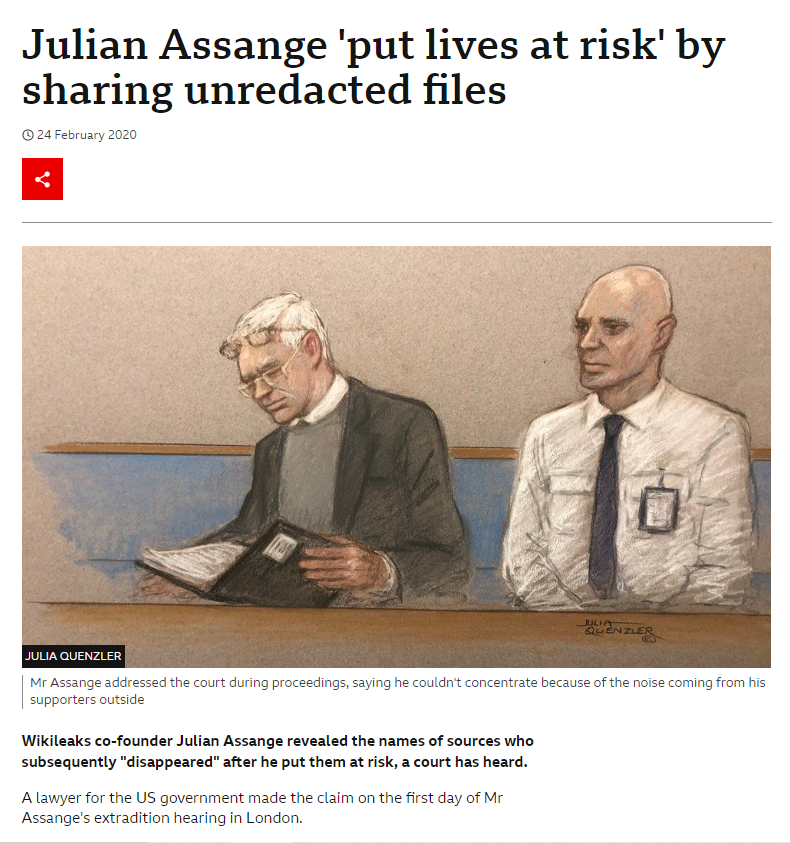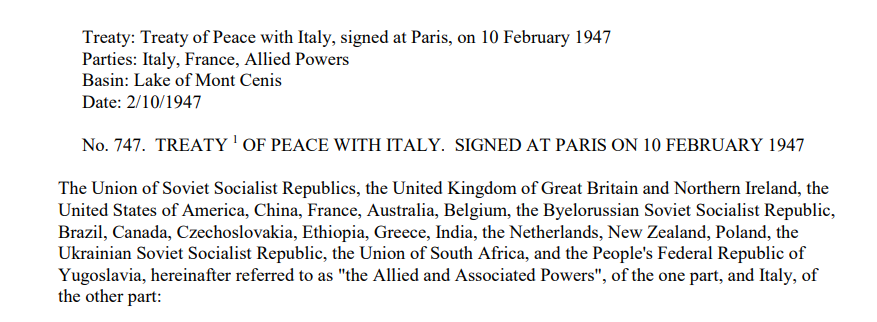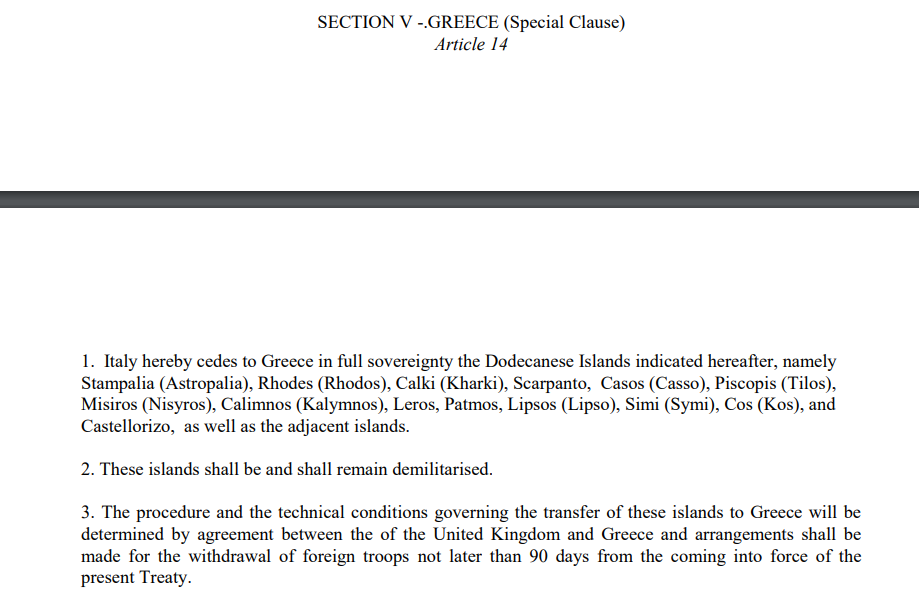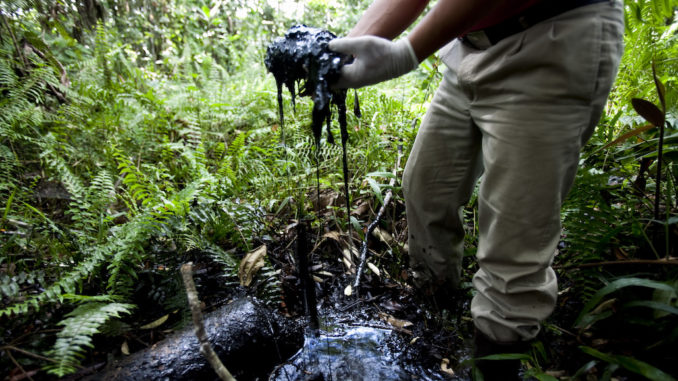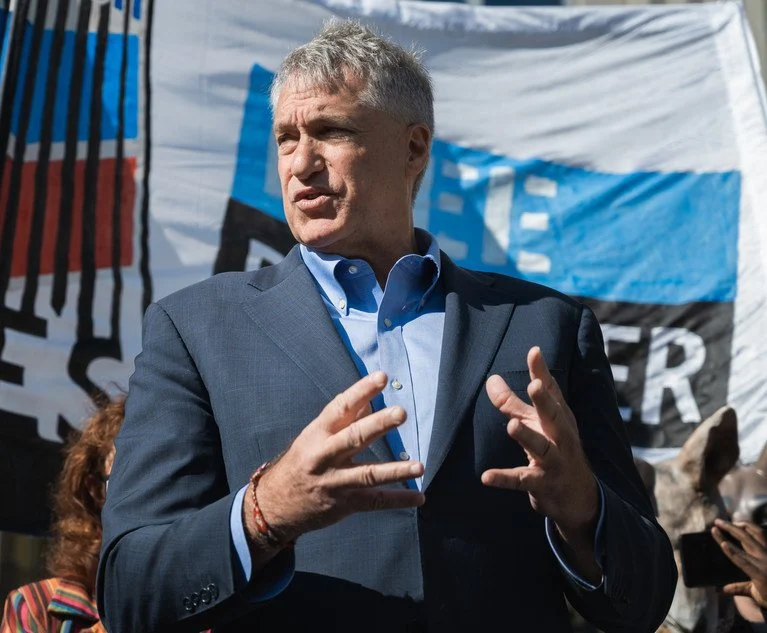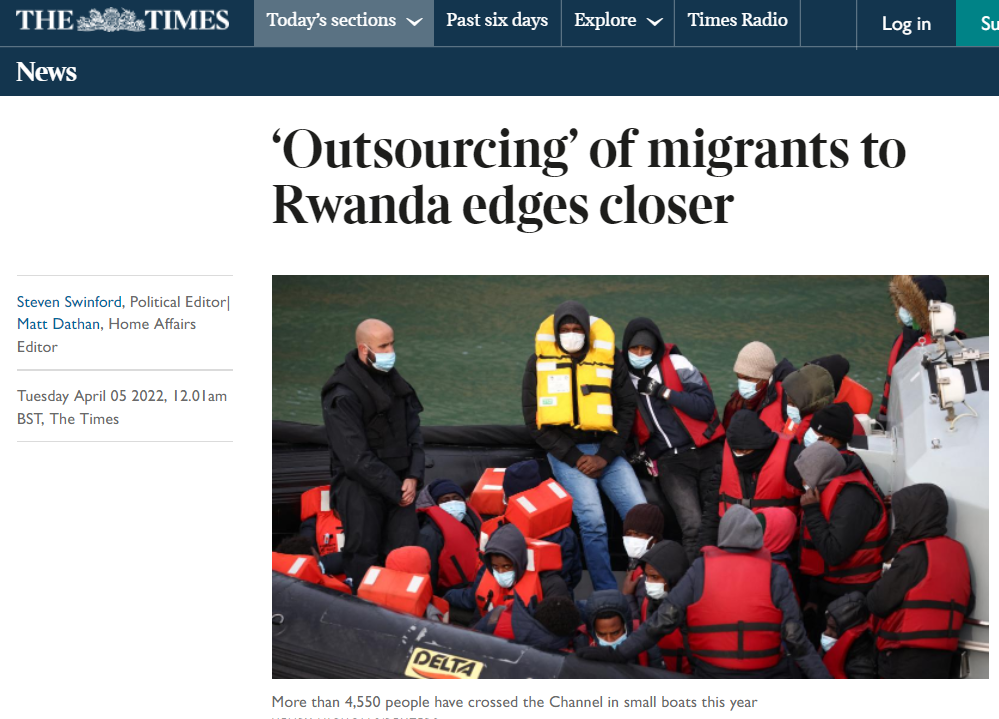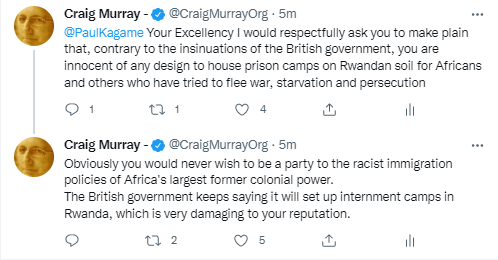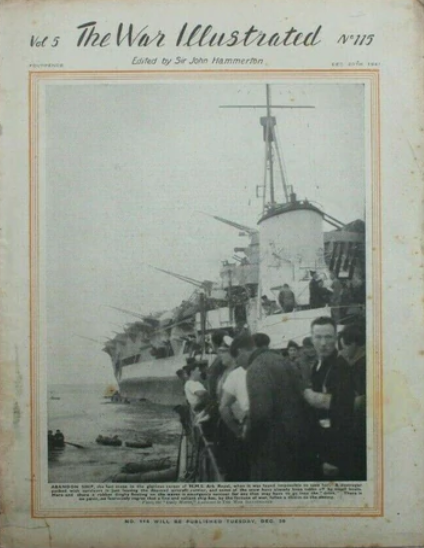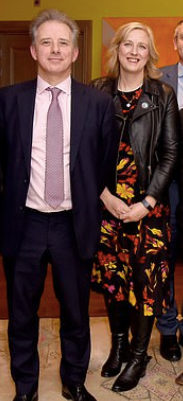No matter how hard we try to be dispassionate and logical, our thinking is affected by our own experiences, by the background knowledge we have and by the assumptions they generate. In discussing Ukraine – which arouses understandably high passions – I want to explain to you some of the experiences which affect my own thinking.
I will start with childhood, when my world view was pretty firmly set. I spent much of my young life at my grandparents’ on my mother’s side, in Norfolk. In the spare room in which I would sleep, under the bed there were cardboard boxes full of periodicals that I, as an avid ten year old reader, devoured completely. They included large sets of The War Illustrated and The Boy’s Own Paper.

The War Illustrated was a weekly magazine produced in both the first and second world war, detailing the week’s key events with stories, photos and drawings. This was the second world war collection. It was sometimes remarkably stark – I still recall the report of the sinking of HMS Prince of Wales and a companion ship by Japanese aircraft, of which the magazine somehow had aerial photos.
But in the early part of the war, known as the “phony war“, when not a great deal was happening to fill the magazine, it concentrated very heavily on the heroic Finnish resistance against Stalin’s Russia in the Winter War. There were, every week, photos of heroic Finns in white hooded winter gear, against a white snowy background, and stories of how they had skied up and down Soviet armoured convoys, destroying them, and were holding back a massively superior opponent amidst lakes and woods. After reading though many weeks of the periodicals, I felt intimately acquainted with the Mannerheim line and those big brave Finns, whose individual tales of great daring I lapped (no pun intended) up.
Incidentally, after writing that paragraph I read this article in the Guardian about Ukrainian quad bike patrols in the snows and the forests, knocking out Russian tanks with drones. It really is identical in content and purpose to the Finnish ski patrol stories, only updated for modern technology.
Then suddenly, from one issue to the next, the Finns were no longer heroes but were evil Nazis, and the Mannerheim Line was now definitely as German as it sounds. What is more, if marginally more gradually, the evil Communist tyrant Stalin, who had sent army after army unsuccessfully against the Finns and been executing his own commanders, was suddenly genial, wise Stalin. As a ten year old, I found the transition very hard to fathom, and being now romantically fully committed to the Finnish cause, I rather went off the magazines.
I tried to ask my grandfather to explain it to me, but whenever we mentioned “the war”, his eyes filled with silent tears. You see, those magazines had belonged to his only son, my mother’s only brother, who was to die aged 19 in a Mosquito bomber over Italy. That is why those magazines were still under his bed and had never been thrown away. Jack’s absence hung over my childhood, and I often felt myself a very inadequate substitute. Jack had been a very talented footballer, who had signed apprentice forms for Sheffield Wednesday, then perhaps the best team in the country. He had been a very talented musician, like my grandfather. Whereas I failed to excel at, well, anything.
I don’t want you to get the wrong idea. I was fortunate to be loved unconditionally. But I grew up with a real sense of the terrible loss, the waste, the void of war, of young lives lost that can never be replaced. I grew up with a hatred of war and of militarism. And of distrust of the official narrative of who are the goodies and who the baddies in war, when that official narrative can turn on its head in a week, as the magazines did with the Finns.
Well, it is now over 50 years later, and those are still exactly my sentiments today. And that parable of the noble/evil Finns is still relevant today. Because much of what is happening in Ukraine still reflects the failure to resolve who was on which side during World War II, and some pretty unpleasant underlying narratives.
You can see the line of thinking by which nations which had been suppressed, or risked suppression, by the Soviet Union, or by Russia before it, might see an alliance with Nazi Germany as an opportunity. Remember that the second world war was taking place only 20 years after the dissolution of the Hapsburg and Hohenzollern Empires. Even a nation like Poland had only enjoyed 20 years of freedom in the past 150, and that with some fairly dodgy governance.
That the Finns effectively allied with the Nazis has never been fully worked through in Finnish national dialogue, even in that most introspective of nations. Sweden hid from itself the extent of its elite collusion and fundamental integration into the Nazi military industrial complex for, well, forever. Probably no country advanced its comparative economic position more out of World War II than Sweden, that epicentre of smug, condescending European liberalism.
So in this mess you can see how a figure like Bandera, fighting for Ukraine’s freedom, can become a national hero to many of his countrymen for fighting the Soviets, despite fighting alongside the Nazis. The key questions in re-evaluation today, across those nationalities which fought the Soviets at the same time as the Nazis did, ought to be these – how much coordination with the Nazis was there, and to what extent did they participate in, or mirror, Nazi atrocities, doctrines of racial purity and genocide?
This is where Bandera and the Ukrainian freedom fighters must attract unreserved condemnation. They were heavily involved in genocidal attacks on Jews, on Poles in Ukraine and on other ethnic and religious minorities. Ukraine was by no means alone. Lithuania was very similar, and to only slightly lesser extent, so were Estonia and Latvia. In none of these countries has there been a systematic attempt to address the darknesses of the nationalist past. Ukraine and Lithuania are the worst for actual glorification of genocidal anti-semite and racist figures, but the problem is widespread in Eastern Europe.
Even Poland is not immune. Poles are proud of their history, and are very touchy at the fact that the millions of Poles who died in Auschwitz and the other Nazi death camps are often overlooked in a narrative that focuses, in Polish nationalist eyes, too exclusively on the Jewish victims. But the Poles are themselves in denial about the very substantial local collaboration between Poles and Nazis specifically against Jews, often with an eye to obtaining their land in rural areas.
This is where the story gets still more difficult. The neo-Nazi nationalists of Ukraine are an extreme manifestation of a problem across the whole of Eastern Europe, where ancient atavistic social views have not been abolished. I say this as someone who loves Eastern Europe, and who has spoken both Polish and Russian fluently (or at least has managed to pass the Foreign Office exams designed to test whether I could). Viktor Orban in Hungary, the religious right government of Poland, and yes, the far right voting electorate of Austria, are all on the same continuum of dark belief as the Nazi worshipping nationalists in Ukraine and Lithuania.
Let me tell you another story from my past, from twenty five years ago. I was First Secretary in the British Embassy in Warsaw. A highly respected elderly Polish lady, from an old family in the city, was our most senior member of local staff. I had asked her to set up a lunch for me with an official from the Polish Foreign Ministry, to discuss eventual EU accession. I made a remark about the lunch being enjoyable as the lady was both very smart and very pretty. Drawing me aside, our most senior member of local staff gave me a warning: “You do realise she’s Jewish, don’t you?”.
You could have knocked me down with a feather. But in four years in Poland I was to become used to bumping into matter of fact anti-semitism, on a regular basis, from the most “respectable” people, and particularly from precisely the forces and institutions that now bolster the current Polish government; not least the Catholic church.
These are highly sensitive issues and I know from experience I will receive furious feedback from all kinds of nationalities. But what I state is my experience. I should add that from my experience of Russia, society there is at least as bad for racial prejudice, especially against Asians, for homophobia, and for neo-Nazi groups. It is a problem across Eastern Europe, which is insufficiently appreciated in Western Europe.
I know Russia too well to have a romanticised view of it. I have lived there, worked there and visited often. I have very frequently expressed my frustration that many of those in the West who understand the ruthless nature of Western leaders, lose their clear sight when looking at Russia and believe it is different in that regard. In fact Russia is even less democratic, has an even less diverse media, even worse restrictions on free expression, and an even poorer working class. The percentage of Russian GDP lost in capital flight to the benefit of oligarchs and Western financial institutions is hideous.
As the West has entered more and more extreme stages of neo-liberalism, the general trend is that the West has become more and more like modern Russia. The massive and ever burgeoning inequality of wealth has seen western oligarchs now overtake their Russian counterparts in terms of the proportion of national GDP represented by their personal fortunes. In the West, multiplying limitations on free speech and assembly, the reduction in diversity of the mainstream media landscape, internet suppression of views through corporate gateways like Twitter, Instagram and Facebook, increased direct or indirect reproduction of security service initiated content in the media, these are all making the West more Russia-like. To me, it feels like Western leaders are learning from Putin’s book.
Security service fronts multiply – the Integrity Initiative, Quilliam Foundation, Bellingcat are all examples, as now is the entire Guardian newspaper. Increasingly “journalists” merely copy and paste security service press releases. This is absolutely an echo of Putin’s Russia. In this war in Ukraine, the propaganda from the BBC is as absolutely biased, selective of facts and lacking in nuance as the propaganda from Russian state TV. One is the mirror of the other. Russia pioneered kataskopocracy in this era – the West is catching up fast.
To recount another particular experience, I was very interested two years ago in the arrest for treason of a Russian space official and former journalist, Ivan Safronov. The accusations refer to his time as a journalist, before he joined the space agency, and are that he passed classified information to Czech, German and Swiss recipients. There are parallels between the Russian espionage charges against Safronov and the US espionage charges against Assange.
I am particularly interested because in 2007 I investigated in Moscow the death of Safronov’s father, also called Ivan Safronov, and also a journalist. I believe Safronov was one of a great many journalists killed by various levels of the Putin regime, of which deaths the vast majority have passed completely unnoticed in the West.
Safronov worked for Kommersant, broadly the Russian equivalent to the Financial Times or Wall street Journal. He was defence correspondent and had published a series of investigations into procurement corruption in the Ministry of Defence and the real state of the Russian armed forces (you might see where I am heading with regard to the war in Ukraine).
Kommersant’s general independence had become a great irritant to Putin, and he had arranged for his close adviser Alisher Usmanov to buy up the title on an “offer you can’t refuse” basis. The editorial team was swiftly replaced. The dogged and highly regarded Safronov was more of a problem.
This is from my 2007 report:
Two months ago, 51 year old Ivan Safronov, defence correspondent of the authoritative Kommersant newspaper in Moscow, came home from work. He had bought a few groceries on the way, apparently for the evening meal. On the street where he lived, as he passed the chemist’s shop in front of the cluster of grim Soviet era apartment blocks, he met his neighbour, Olga Petrovna. She tells me that he smiled from under his hat and nodded to her. After a mild winter, Moscow had turned cold in March and Safronov held his carrier bag of groceries in one hand while the other clutched the lapels of his coat closed against the snow. Fifty yards further on he arrived at the entrance to his block, and punched in the code – 6 and 7 together, then 2 which opened the mechanical lock of the rough, grey metal door at the entrance to the concrete hallway. He passed on into the gloomy dank corridor.
So far this is a perfectly normal Moscow scene. But then – and this is the official version of events – Ivan Safronov did something extraordinary. He walked up the communal concrete stairs with their stark iron rail, until he reached his apartment. It is, in British terms, on the second floor. Instead of going in, he carried on walking, past his own door. He continued up another flight and a half of steps, to the top landing, between the third and fourth floors. Then, placing his groceries on the floor, he opened the landing window, climbed on to the sill, and stepped out to his death, still wearing his hat and coat.
Ivan Safronov thus became about the one hundred and sixtieth – nobody can be certain of precise numbers – journalist to meet a violent end in post-communist Russia. In the West, the cases of Anna Politkovskaya and Alexander Litvinienko hit the headlines. But in Russia, there was nothing exceptional about those killings. It has long been understood that if you publish material which embarrasses or annoys those in power, you are likely to come to a very sticky end…
Safronov had a reputation as a highly professional journalist, meticulous about checking his facts. He was by no means a sensationalist, but had over the years published articles which embarrassed the Kremlin, about bullying, prostitution and suicide among Russia’s conscript armed forces, and about high level corruption which deprives the troops of adequate clothing, rations and equipment.
He had recently returned from a large trade fair in Dubai, attended by senior representatives of Russia’s armed forces and defence industries. He told colleagues at Kommersant that he had learnt something there about corruption in major arms contracts, involving exports to Syria, Iran and other destinations. He had told his editor he had come back with a ‘Big story’. But, as usual, he was carefully checking up on his facts first.
Now his story will never be published.
I walk through the dirty Moscow drizzle to a police station in the foot of the apartment block opposite Safronov’s. The officer in charge is brusque. There are no suspicious circumstances and the case is closed. Why am I wasting his time, and trying to cause trouble? He threatens to arrest me, so I beat a hasty retreat to find Safronov’s flat, past the chemist’s shop, in the footsteps of his last walk. In the muddy yard between the blocks, unkempt drunks squat for shelter at the foot of scrubby trees, drinking cheap vodka from the bottle.
I look up at the top landing window from which Safronov fell. It doesn’t look terribly high. Outside the block entrance, I stop and look down at the patch of ground on which he landed. The surface is an uneven patchwork of brick, concrete, asphalt and mud. Here a passing group of young men found Safronov, writhing on the ground, conscious but unable to speak. It took almost three hours for an ambulance to come. According to Kommersant Deputy Editor Ilya Bilyanov, although plainly alive when finally taken away, he was declared dead on arrival at hospital.
A stout old lady beating her rugs in the rain gives me the combination to go in to the apartment building. Once through the heavy metal door, I am overwhelmed by the smell of fresh paint. . Everything in the stairway – walls, ceilings, rails, doors, window frames – has been covered in lashings of thick oozing paint, as though to cover over any trace of recent events. The paint has been slapped on so thick that, even after several days, it remains tacky.
I pass the door of Safranov’s flat and continue up to the top landing. At the cost of some paint damage to my coat, I pose in the window from which he allegedly threw himself. It is certainly quite easy to open and clamber out, but it is a bad choice for a suicide. Soviet flats are low-ceilinged, and I calculate the window is a maximum height of 26 feet above the ground. I don’t know about you, but if I was to kill myself by jumping, I would choose somewhere high enough to make death instant… As I peer down from the window I realise that, jumping from here, you are almost certain to hit the porch roof jutting out below. That is only about twenty feet down. The Moscow police claim that marks in the snow on the porch roof were the firm evidence that Safranov jumped.
Two middle aged ladies pass with their shopping. I explain that I am investigating Safranov’s death; it seems an improbable suicide. ‘Very strange,’ they agree, ‘Very, very strange.’ They go on to volunteer that Safranov was a pleasant man, had a very good wife, did not drink excessively and was much looking forward to the imminent birth of a grandchild. Plainly, everything they say is questioning the official version, but they do not wish to do so openly. They conclude by shaking their heads and repeating their mantra ‘Very, very strange,’ as they scuttle on into their flats.
Ilya Bilyanov, Safronov’s boss, is more categorical. Safronov was a devoted family man, very protective of his wife and daughter and proud of his son, about to start University. Bilyanov says: ‘He could not have killed himself. He loved his family too much to abandon them.’
For full disclosure, the report was commissioned by the Mail on Sunday. I make no apologies for that, any more than I apologise for appearing on Russia Today. Telling the truth is what matters, irrespective of platform. On the same trip I investigated the killings of half a dozen other individual journalists who had crossed the authorities.
I am fairly sure that today I would not be permitted to go around doing this; walking in to a Moscow police station to ask about such a death, or interviewing passersby in the street and work colleagues, would get me arrested fairly quickly.
I wrote recently about NATO, the western military and the arms industry’s continued interest in exaggerating the strength of the Russian military, and how at the end of the Cold War the new access of British defence attachés led them to find the real capabilities of the Soviet army had been exaggerated on a massive scale. I have repeatedly stated that Russia, with the economy of Italy and Spain, is not a military superpower.
The Safronov case further reinforced my personal knowledge that the Russian military is undermined by massive corruption. I have therefore not been in the least surprised that Russia has had a much harder time subjugating Ukraine than many expected. Some commentators have particularly amused me by claiming that you cannot compare defence spending levels because Russian defence expenditure is more efficient than American. They cited all the corruption in US defence expenditure, such as the famous US$800 toilet seats; as though Russia were not itself spectacularly corrupt.
At just the time of Safronov’s death, Russia brought in as Minister of Defence Anatoly Serdiukov, who made genuine attempts at radical reform and eliminating corruption. This brought him so many enemies he had to be replaced by current defence minister Shoygu, now in power for ten years. Shoygu has adopted a policy of showcasing new weapons systems while not rocking the boat on corruption.
Do not confuse the apparently dazzling achievements at the shiny end of the vast sums of money Russia has pumped in to weapons development, with the day to day business of defence procurement and military supply. Russian hypersonic ballistic missiles may or may not perform as advertised, but more relevant to Ukraine are the creaking vehicles which have not been maintained, the inoperable tyres, the lack of rations, the old fashioned tank armour.
One of the truths about the Ukraine war which western media is suppressing is that, if Russia cannot take on Ukraine without serious embarrassment, then Russia could not possibly take on NATO. It is a ludicrous proposition, outwith full scale nuclear war. It is fascinating to watch the western militarist establishment in full cry, simultaneously crowing over Russian military inadequacies while claiming that the West needs massively to increase the money it pumps in to the military industrial complex because of the Russian threat. The self-evidently fatuous nature of this dual assertion is never pointed out by mainstream media journalists, who currently operate in full propaganda mode.
Another Russian asset has proved as unreliable as its military: Putin’s brain. On 16 December 2021 Ukraine and its US sponsor were not just diplomatically isolated, but diplomatically humiliated. At a vote at the UN General Assembly, the United States and Ukraine were the only two countries to vote against a resolution on “Combating glorification of Nazism, neo‑Nazism and other practices that contribute to fuelling contemporary forms of racism, racial discrimination, xenophobia and related intolerance”. They lost by 130 votes to 2, on a motion sponsored by Russia.
The United States, crucially, was split from its European allies and, almost uniquely, from Israel on this vote. Everyone knew that the vote was about Nazis in Ukraine, not least because the United States and Ukraine both said so in their explanation of vote. The entire world was prepared to acknowledge that the neo-Nazis in positions of power and authority in Ukraine, including the anti-semites of the Svoboda party in ministerial office, were a real problem. There was also a general understanding that Ukraine had reneged on the Minsk agreements and that the banning of the Russian language in official, media and educational use was a serious problem.
(I pause to note the US explanation of vote stated that the US constitution prevented it from voting for a motion calling for the banning of pro-Nazi speech, because of US commitment to free speech and the first amendment. It is worth noting that free speech in Biden administration eyes protects Nazis but does not protect Julian Assange. It is also worth contrasting the protection of free speech for Nazis with the de facto banning of Russia Today in the United States.)
The EU abstained on the vote, but all of the above problems were rehearsed in ministerial discussions that reached that decision. You can add to the above that it was universally acknowledged in diplomatic circles that there was no chance of Ukraine (ditto Georgia) being admitted to NATO while Russia occupied parts of Ukraine’s sovereign territory. Given NATO’s mutual defence obligations, to admit Ukraine would be tantamount to entering armed conflict with Russia and it was simply not open to serious consideration.
How Russia might have progressed from this strong diplomatic position we shall never know. There can seldom have been a more catastrophic diplomatic move than Putin’s invasion of Ukraine. It can be measured very simply. From winning the proxy vote on Ukraine at the UN General Assembly by 130 votes to 2 on 19 December, Russia plummeted to losing the vote in the same General Assembly demanding immediate Russian withdrawal from Ukraine by 141 votes to 5 on 2 March.
This diplomatic disaster has been matched by military humiliation. Russia is a far larger country than Ukraine and it is pointless to pretend that Russia did not expect the military campaign to proceed better than it has. To claim now post facto that the attack on Kiev was purely a massive diversion never intended to succeed, is a nonsense. Elsewhere achievements are shaky. Capturing cities is different to holding them, and the myth that Russian speaking populations in Eastern Ukraine were eager to join Russia has been plainly exploded by the lack of popular support in occupied areas.
Putin’s heavy handedness has alienated what potential support for Russia existed outside the Russian controlled areas of Donbass. It is hard now to recall that prior to the coup of 2014, political support in Ukraine was balanced for two decades fairly evenly between pro-Western and pro-Russian camps. Both Russia and the West interfered from 1992 to 2014 outrageously in Ukrainian internal politics, each using the full panoply of “soft power” – propaganda, sponsorship, corrupt payments, occasional proxy violence.
Matters were brought to a head in Ukraine when Yanukovich was flown to Moscow and persuaded by Putin to renounce the EU Association Agreement which Ukraine was entering, in favour of a new trade deal with Russia. This evidently was a key moment of political choice, and Putin overplayed his hand as he lost out in the crisis that ensued. That Russian defeat in 2014 may not have been terminal if Putin had not responded militarily by annexing parts of Ukraine. In doing so, he alienated the large majority of Ukrainians of all ethnicities forever – as I stated at the time.
So now Putin can stride the stage as the macho guy who outfoxed the west and used his military to win Crimea for Mother Russia. But it is an extremely hollow victory. He has gained Crimea, but lost the other 95% of the Ukraine, over which one month ago he exercised a massive political influence.
The current invasion of Ukraine has differed from previous incidents like South Ossetia, Abkhazia or even Crimea in that it has been much more extensive, and entailed an attack on the capital, rather than simply occupation of the targeted areas. If Putin had simply massively reinforced Russian forces in the areas controlled by his breakaway “republics”, there would not be anything like the international reaction which has resulted.
One particularly unsavoury aspect of all this – and here we come back to Finland/Russia and the goodies/baddies narrative – is that all the massive problems of Ukraine are now utterly whitewashed by the western political and media class. There was general acceptance previously, albeit reluctantly, that the “Nazi problem” exists. It is now almost universally reviled as a Russian fiction, even though it is undoubtedly true.
Just a year ago, even the Guardian was prepared to admit that President Zelensky is linked to $41 million in dodgy offshore cash holdings and effectively a front for corrupt oligarch Kolomoisky, who looted $5.5 billion from Privatbank. Now, thanks entirely to Putin, Zelensky is viewed universally as a combination of Churchill and St Francis of Assisi, and any criticism of him whatsoever in the West will get you online lynched.
That the United States is becoming a kataskopocracy is witnessed by the willingness of the Biden administration to rip up the First Amendment in order to prosecute Assange under the Espionage Act, because the CIA and FBI demand it. It is also witnessed by the role of the security agencies in suppressing the truth about Hunter Biden and his corrupt links to Ukraine. The Biden laptop was, as I stated at the time and is now admitted even by the New York Times, an entirely genuine inadvertent leak.
You will recall that from when his father was Vice President, Hunter Biden was paid $85,000 a month by Burisma, a Ukrainian power company which Hunter never once visited and for which he did no discernible work. When his laptop was given to the New York Post, revealing salacious sex and drugs evidence and more importantly, blatant peddling of his father’s influence, the entire “respectable” mainstream media rubbished it as a fraud and, remarkably, Twitter and Facebook both suppressed any mention of it as “fake news”. This suppression was advocated by the US security services, contacting the media and the internet gatekeepers at top level, and conducting a public campaign through activating retired agents.
This was the CNN headline:

The Biden laptop was leaked on 14 October 2020, three weeks before voting day in the Presidential election. Its suppression by the mainstream media, Twitter and Facebook, at the behest of the security services, is the biggest illegitimate interference in an election in modern western history.
That the Ukraine is the scene of so much of the corruption of Biden and son, but no criticism of the Ukraine is currently considered legitimate, has made now a very good time for the approved media to admit the banned stories were in fact true, while nobody is listening. We are also even seeing credulous articles on why Nazis are not really bad at all.
A Ukrainian oligarch was the biggest single donor to the Clinton Foundation, and the murky links between the American political establishment and Ukraine are still surfacing; it has plainly been a major honeypot for US politicians. The recent Credit Suisse leak, again sadly curated and censored by mainstream media, revealed Ukrainians as the largest European nationality involved, but the media gave us virtually no details – and those confined to two “coincidentally” pro-Russian Ukrainians out of 1,000 Ukrainian accounts. Whatever information on Ukrainian government linked oligarchs was contained in the Credit Suisse documents is suppressed by those who control them, which in the UK includes the Guardian newspaper and James O’Brien of LBC. In Ukraine the material was shared only with pro-government journalists.
I have been criticised severely on Twitter by those who believe that now, in wartime, it is wrong to say anything bad about Ukraine and we must solely concentrate on Russia’s defeat. To be clear, I hold Putin’s invasion of Ukraine to be not only stupid and vicious but also illegal, and to constitute the war crime of aggression. But we come back precisely to the angels and devils simplicity of looking for “goodies” and “baddies”. The Azov Battalion have not suddenly become less racist or brutal or Nazi-worshipping because they are fighting the Russians.
The real danger is that the heroic resistance to Putin’s invasion – and be in no doubt, it is heroic – will be a massive boost to the right in Ukraine, and the cult of “Glory to the heroes!” will be massively reinforced. The far right had more influence than Zelensky wished before this current invasion, and his ability to control them is limited. His personal standing is much enhanced. He may be a deeply fallible human being, but as a war leader he has been brilliant. He has exploited media to boost the morale of his armed forces and to rally his people, and been very effective in using international public pressure to rally practical support from foreign powers. Those are key skills for a war leader, and if “acting” is one of the skill sets needed, that makes it none the less true.
But I very much doubt the enhanced standing of Zelensky will enable him to counter the right wing nationalist wave that will sweep Ukraine, especially if resistance continues to be effective in containing Russian advances. Certainly measures that were previously decried by liberals, like the Russian language ban, now have wide support. I shall be very surprised if, once the dust has settled, we do not see much worse repression of ethnic Russians under the guise of action against “collaborators”. Far from denazifying Ukraine, Putin has boosted its Nazi problem.
Having damaged my own reputation for sagacity by my over-confidence that Putin would not be foolish enough to launch a full scale invasion, I am reluctant to venture any predictions as to outcome, but the most likely must be a frozen conflict, with Russia in control of rather more territory than before the conflict started. The Kremlin has appeared to backtrack its aims to securing the territory of its newly recognised republics, and still appears intent on seizing as much coastline as possible. Without a credible threat to Kiev, Zelensky has little motive formally to agree a ceasefire on this basis. Eventually we will reach some form of de facto stasis.
Now is a good moment to correct the myth that the population of Donbass is ethnic Russian and wishes to be united with Russia. I will make three points.
The first is that there is a difference between Russian speaking and ethnic Russian, and repeated census returns in Ukraine showed the majority in Donbass to identify as ethnic Ukrainian, though Russian speaking.
Secondly, the ethnic Russians were heavily concentrated in the urban centres and thus much more politically visible than the rural Ukrainian majority, and far quicker politically mobilised. This is precisely what happened in 2014 (and failed with tragic loss of life in Odessa).
The third is that many ethnic Russians have resisted the current invasion, and even Russian media has struggled to find evidence of mass enthusiasm in newly “liberated” areas.
In the western world, Russia has served as not only the evil empire that “justifies” massive arms expenditure, but as the evil genius behind all political developments that threaten the smooth course of neoliberalism.
This was brought to its highest pitch by Hillary Clinton’s ludicrous claims that it was Russian hacking that cost her the 2016 election. It was actually the fact that she was an appalling and arrogant candidate, whom the electorate disliked and black voters did not bother to turn out for in their usual numbers, and that she ignored the voters of rustbelt states and their concerns.
The security services were shocked by Trump’s aversion to starting new wars abroad, his maverick inclination to have his own take on relations with Russia and the Middle East, and his general lack of docility in the face of security service advice. (Much of Trump’s foreign policy was terrible, I am not attempting to say otherwise. But he was not the kind of docile, Obama-like tool the security services were used to).
The security services therefore worked against Trump his entire time in office, from boosting the Russiagate election hacking narrative, despite there being no evidence for it whatsoever, to quiet briefings giving credence to the appalling charlatan Steele’s discredited “peegate” dossier, right through to the suppression of the Biden laptop story. The Mueller inquiry failed to come up with any evidence of collusion between Russia and Wikileaks in hacking the DNC emails, because there was no such collusion.
Neither was there collusion between Wikileaks and Trump. The story the UK security services placed in their house journal the Guardian, on secret meetings between Manafort and Assange, was simply a lie. Throughout his Presidency Trump was subjected to a continual drip, drip, drip of briefings to the media from his own security services that he was, in some way, a secret Russian asset, Putin’s puppet.
The CIA commissioned from UC Global 24 hour secret taping of Assange in the Ecuadorean Embassy, including in the bedroom, toilet and kitchen. This included meetings with his lawyers, but also many hours of private conversation with myself, with Kristin Hrafnsson and others. This too came up entirely empty on evidence of Russian collusion. Because there was never any such collusion.
Just as “Russiagate” was an utter nonsense, attempting to use Putin to explain the advent of Trump, so in the UK liberals comforted themselves by attempting to use Putin to explain Brexit. Like Trump, Nigel Farage and Arron Banks “must” be secret Russian agents too. The high priestess of this particular cult belief is Carole Cadwalladr. From having done good work in exposing Cambridge Analytica, which targeted political ads to Tory benefit using personal data which Facebook was greatly at fault in making available on its customers, Cadwalladr allowed the subsequent accolades to go to her head and became the security services’ tool in making ever wilder claims of Russian influence.
Cadwalladr’s task was easy because the UK’s liberal middle class simply could not come to terms with Brexit having happened. They could not understand that vast swathes of the working class were so alienated from society by the effects of unconstrained neo-liberalism, that they were led to grasp at Brexit as a possible remedy. That is not a comforting thought. Instead, Cadwalladr offered the much more digestible notion of Putin as an evil exterior cause.

With right thinking liberals on both sides of the Atlantic appalled by the advent of Trump and Brexit, there was no depth of Russophobe fantasy which figures like Cadwalladr and Steele could not plumb as an explanation and still find a willing audience, without being questioned too hard on actual evidence.
Again, I should be plain. Nations do interfere in each other’s democratic processes to try to get results favourable to themselves. It is a fundamental part of the job of spy services and of diplomats. It is what they are paid to do. I did it myself in Poland, and with quite spectacular success in Ghana in 2000 (read my book The Catholic Orangemen of Togo).
No nation interferes in other nation’s elections and political processes on the scale that the United States does, every single day. Today it is trying to get rid of Imran Khan in Pakistan as well as continuing its work against the government in Venezuela, Cuba, Syria and elsewhere. That there was marginal Russian activity I do not doubt, but not on any grand or unusual scale or with any particularly striking effect. And not involving Wikileaks.
One consequence of the invasion of Ukraine is that every mad Russophobe narrative of the past decade is now, in the public mind, vindicated. Including the remarkably unsuccessful attempts to assassinate Skripal and Navalny. It is now impossible to claim that there is any evil for which Russia is not responsible, without suffering a deluge of online hostility and ridicule. The western military industrial complex, NATO and the Western security services have all been enormously strengthened in their domestic position and control of popular opinion by Putin’s mad invasion.
There are aspects of Putin’s foreign policy which I have supported, and still do. Having inadvertently installed a pro-Iranian Shia regime in Iraq, the West sought to appease its Gulf and Israeli allies and “restore the balance” by replacing the Shia-friendly Assad regime by hardline ISIS and Al-Qaida linked jihadists. This may have been the most stupid foreign policy move in recent history, and thank goodness Putin sent troops into Syria to thwart it. On a more standard diplomatic level, Russia has played a pivotal and entirely commendable role in trying to end the isolation of Iran in nuclear agreement talks.
But I have always consistently opposed Putin’s invasions in the post-Soviet space, including the brutal destruction of Chechnya that brought Putin to power. I support Dagestani and Chechen independence, and have written consistent articles pointing out that Russia remains an Empire, with most of its territory not ethnic Russian and acquired contemporaneously with the conquests of the British Empire. I have consistently called for stronger and more effective sanctions, in response to the occupation of South Ossetia in 2008 and of Crimea in 2014. In 2008 I warned explicitly that the lack of a firm sanctions response to Putin’s aggression would lead eventually to war in Eastern Ukraine.
Russia’s actions are illegal but the US and UK, who launched an equally illegal and much more devastating invasion of Iraq, are ill-placed to be outraged. A de facto Russia annexation of South Ossetia must not be permitted, unless we eventually want a war of Eastern Ukraine.
NATO is part of the cause of the problem, not the solution. By encircling and humiliating Russia, NATO has created the climate in Russia so favourable to Putin.
That last sentence remains a key observation. It is the West’s unremitting hostility to Russia which has caused a Russian nationalist reaction and sustained Putin in power. The West’s military industrial complex needed an enemy, and had Russia developed in a more liberal direction it would have been a disaster for the militarists. So instead of working to plot a path for Russia into the European Union, it was forced to sit in the corner with a hat on saying “designated enemy”, while NATO continually expanded. That is the tragedy of the last three decades.
All of which ignores the fact that China is now the most dominant economic force in the world, and is probably the most dominant military force in the world, although Chinese wisdom in not recently deploying its military might on imperial adventures contrasts sharply with the United States. I am not sure when I last bought anything which was not made in China – including, to my amazement, our second hand Volvo. All this Russia/NATO antagonism will scarcely rate a footnote by mid-century.
I want to conclude with a plea for complex thought. I want to go back to the Finns and Russians at the start of this story, and the truth that “goodies” and “baddies” is not a helpful diagnostic tool for international relations. These things can be true at the same time:
a) The Russian invasion of Ukraine is illegal: Putin is a war criminal
b) The US led invasion of Iraq was illegal: Blair and Bush are war criminals
a) Russian troops are looting, raping and shelling civilian areas
b) Ukraine has Nazis entrenched in the military and in government and commits atrocities against Russians
a) Zelensky is an excellent war leader
b) Zelensky is corrupt and an oligarch puppet
a) Russian subjugation of Chechnya was brutal and a disproportionate response to an Independence movement
b) Russian intervention in Syria saved the Middle East from an ISIS controlled jihadist state
a) Russia is extremely corrupt with a very poor human rights record
b) Western security service narratives such as “Russiagate” and “Skripals” are highly suspect, politically motivated and unevidenced.
a) NATO expansion is unnecessary, threatening to Russia and benefits nobody but the military industrial complex
b) The Russian military industrial complex is equally powerful in its own polity as is Russian nationalism
I could go on, but you get the point. I hold all those points to be true. The media and political class in the UK will trumpet a) and vehemently deny b). Many in the anti-war movement will trumpet b) and vehemently deny a). None of these people have any actual principles. They are simply choosing a side, choosing their “goodies” and “baddies”, their black hats and white hats. It is no more an ethical choice than supporting a football team.
One final thought on the tone of the coverage of the war both of the media and of supporters of the official western line on social media. Though affecting to be sickened by the atrocities of war, their tone is not of sorrow or devastation, it is triumphalist and jubilant. The amount of war porn and glorying in war is worrying. The mood of the British nation is atavistic. Russians living here are forced on a daily basis to declare antagonism to their own people and homeland.
I have had great difficulty in writing this piece – I have worked on it some three weeks, and the reason is a deep sadness which this unnecessary war has caused me. In the course of my typing any paragraph, somebody has probably been killed or seriously injured in Ukraine, of whatever background. They had a mother and others who loved them. There is no triumph in violent death.
————————————————-
Forgive me for pointing out that my ability to provide this coverage is entirely dependent on your kind voluntary subscriptions which keep this blog going. This post is free for anybody to reproduce or republish, including in translation. You are still very welcome to read without subscribing.
Unlike our adversaries including the Integrity Initiative, the 77th Brigade, Bellingcat, the Atlantic Council and hundreds of other warmongering propaganda operations, this blog has no source of state, corporate or institutional finance whatsoever. It runs entirely on voluntary subscriptions from its readers – many of whom do not necessarily agree with the every article, but welcome the alternative voice, insider information and debate.
Subscriptions to keep this blog going are gratefully received.
Choose subscription amount from dropdown box:
Paypal address for one-off donations: [email protected]
Alternatively by bank transfer or standing order:
Account name
MURRAY CJ
Account number 3 2 1 5 0 9 6 2
Sort code 6 0 – 4 0 – 0 5
IBAN GB98NWBK60400532150962
BIC NWBKGB2L
Bank address Natwest, PO Box 414, 38 Strand, London, WC2H 5JB
Bitcoin: bc1q3sdm60rshynxtvfnkhhqjn83vk3e3nyw78cjx9
Ethereum/ERC-20: 0x764a6054783e86C321Cb8208442477d24834861a
Subscriptions are still preferred to donations as I can’t run the blog without some certainty of future income, but I understand why some people prefer not to commit to that.
